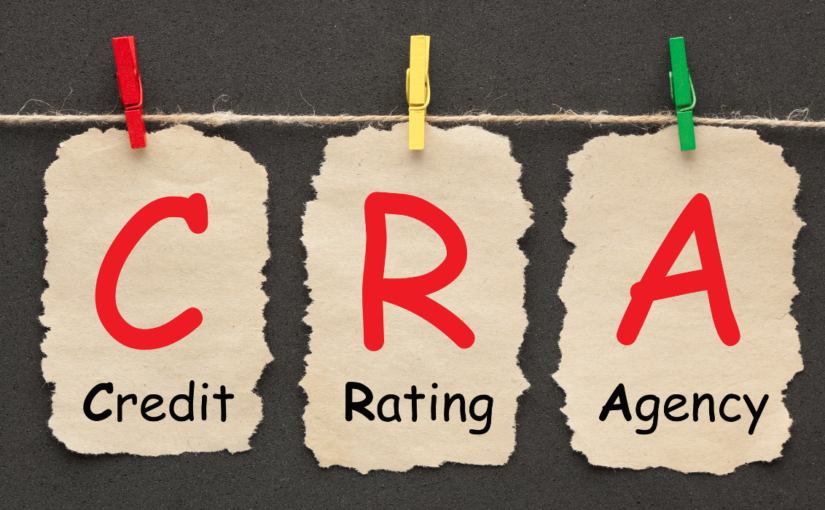back
The Role of Ratings Agencies in the CMBS Loan Market
02-2023

For many years, the commercial mortgage-backed securities (CMBS) loan market has been a major source of funding for the real estate sector. It offers lenders, investors, and property owners a way to fund investments that are supported by the cash flow from a pool of commercial mortgages. The role of ratings agencies is crucial in determining the creditworthiness and risk profile of these securities given the billions of dollars invested in this market.
Ratings agencies: what are they?
Ratings agencies are businesses that determine whether financial instruments like bonds, stocks, and loans are creditworthy. They assess the risk associated with an investment and give it a credit rating. The likelihood of default or the risk of the investment not being repaid is indicated by this rating. Standard & Poor’s (S&P), Moody’s, and Fitch Ratings are the three biggest credit rating companies in the world. Due to the fact that investors, lenders, and regulators rely on these agencies to make knowledgeable investment decisions, they have a significant impact on the market for CMBS loans.
Why are ratings significant in the market for CMBS loans?
In order to give lenders and investors a fair evaluation of the creditworthiness of the securities they are considering lending against, ratings are essential in the CMBS loan market. Making an informed investment decision is made possible by this information, which is crucial in assessing the risk associated with a particular investment. The interest rate at which the securities are issued and the yield that the investor can expect from the investment are both significantly influenced by ratings.
Credit ratings can also affect how liquid the market is for CMBS loans. For instance, high credit-rated investment grade securities are more desirable to investors because they are thought to have a lower default risk. The market becomes more active and liquid as a result of the increased demand for investment-grade securities, making it simpler for investors to buy and sell these securities.
How Do Ratings Agencies Evaluate CMBS Loans’ Creditworthiness?
Ratings agencies examine the underlying mortgages and the cash flow they produce to determine the creditworthiness of CMBS loans. They take into account things like the borrower’s creditworthiness, the property’s quality, and the surrounding market conditions. In order to make sure that the cash flow produced by the underlying mortgages is distributed to investors as anticipated, they also consider the structure of the securities, including the legal and contractual arrangements.
Reviewing the underwriting standards used to originate the loans, such as the loan-to-value ratio, debt service coverage ratio, and borrower creditworthiness, is the first step in the rating process. Then, the agencies carry out a cash flow analysis to ascertain the anticipated cash flow produced by the underlying mortgages and the borrower’s capacity to pay back the debt. This analysis includes a review of the local market’s economic circumstances as well as a forecast of upcoming market circumstances.
The agencies give the CMBS securities a credit rating after the credit analysis is finished. The likelihood of default and the creditworthiness of the securities are both reflected in this rating. The rating process is ongoing, and the agencies continuously check the securities’ credit quality to make sure the rating is still accurate.
The Value of Credit Ratings in the Market for CMBS Loans
Credit ratings are essential in the CMBS loan market because they give lenders and investors a dispassionate evaluation of the securities’ creditworthiness. Making an informed investment decision is made possible by this information, which is crucial in assessing the risk associated with a particular investment. The market liquidity of CMBS loans is also significantly impacted by credit ratings because investment-grade securities, which have high credit ratings, are typically more appealing to investors and are thought to have a lower default risk. The market becomes more active and liquid as a result of the increased demand for investment-grade securities, making it simpler for investors to buy and sell these securities.
Credit ratings also help establish industry standards and best practices for originating and underwriting commercial mortgages. They also give regulators a way to keep an eye on the securities’ creditworthiness and support safe and sound market operations.
The commercial mortgage-backed securities (CMBS) loan market is a significant source of funding for the real estate sector for investors, lenders, and property owners. In assessing the creditworthiness and risk profile of these securities, ratings agencies play a critical role in this market. Ratings agencies examine the underlying mortgages and the cash flow they produce, taking into account a number of variables like the borrower’s creditworthiness, the property’s quality, and market conditions. Making an informed investment decision is made possible by this information, which is crucial in assessing the risk associated with a particular investment.
In conclusion, credit ratings are essential to the CMBS loan market because they give lenders and investors an unbiased assessment of the securities’ creditworthiness and support market liquidity. They also act as a benchmark for the sector, establishing best practices for originating and underwriting commercial mortgages and giving regulators a way to keep track of the securities’ credit quality.
F2H Capital Group is a debt advisory firm specializing in negotiating the best terms for your commercial real estate projects. The company offers a range of financial products and services, including fixed loans, bridge loans, and construction loans across all asset types. Please contact us for any of your financing needs.

